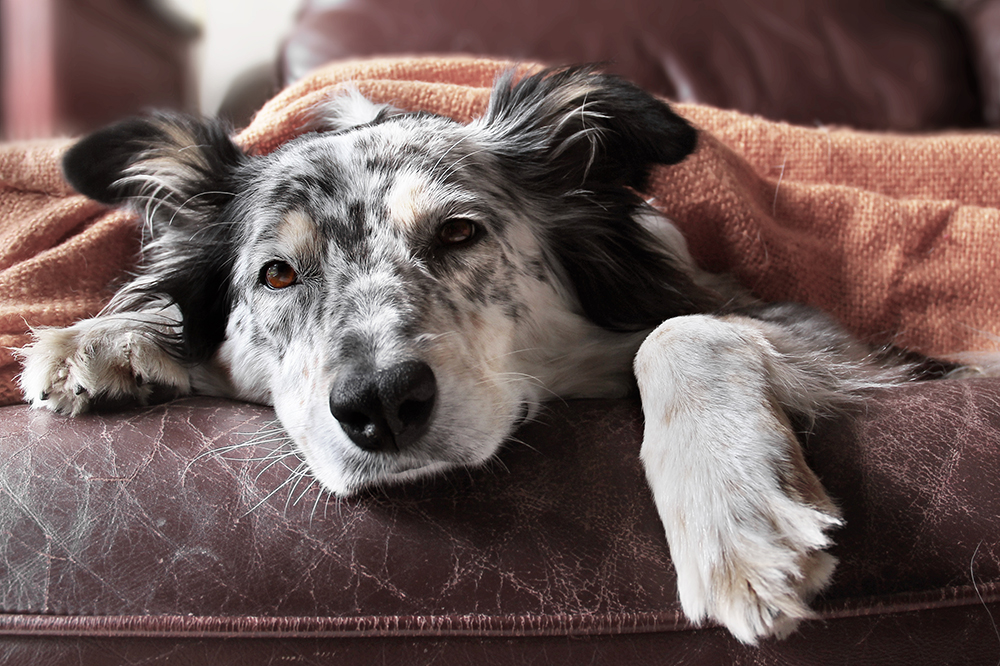Click to Skip Ahead
Perhaps you dreamed of becoming a veterinarian when you were a child. It all sounded good, minus the long and grueling schooling. But the one thing that really held you back was knowing that part of the job was putting animals to sleep.
This can be a major turn off for a lot of people. It might leave you wondering how exactly vets feel when they have to put animals to sleep? The reality is that every individual is different, but the truth remains the same.
Vets do what they do because they love animals and want to keep them alive and healthy, so putting a pet to sleep is always going to be sad. However, in most situations, euthanasia is also an act of kindness.
Do Vets Dislike Putting Animals to Sleep?
Most veterinarians get sad when they have to put an animal to sleep; it’s not something that any vet looks forward to when they start their day. Not only do they have to deal with the emotion of a pet’s final moments, but they also have to watch the grief of the owners as they say their goodbyes. But it is known very early on that this is part of the job.

It’s Part of the Job
As a vet or veterinary technician, part of your job is putting animals to sleep. Euthanasia is a very common – and merciful – practice when dogs are very sick or are reaching the final days of their lives.
It is a very humane process that is virtually painless, but no less difficult to be a part of. If the vet seems stoical, it might simply be that they have mastered the art of compartmentalization, which is essential for anyone in this line of work.
In fact, it’s kind of like doctors for humans. Some might seem cold or detached, but it is only because the job, to some degree, has become mechanical out of necessity. But that doesn’t mean it gets any easier for them.
It is not unusual for a vet to go from helping a family say goodbye to their beloved family pet one minute, to seeing a joyous owner with their brand new puppy the next. The ability to create emotional distance from their work is essential for vets to cope with the day-to-day emotional rollercoaster of their work.
Putting Animals to Sleep Unnecessarily
Arguably the most difficult euthanasia for any vet is that of a healthy dog or cat. There are times when owners request the euthanasia of their pet for behavioral, financial, or lifestyle reasons, and unfortunately, rehoming is not always an option, particularly if the owner does not consent to it.
Although a vet can decline to put an animal to sleep if they feel it is unnecessary or unethical, if they believe the pet to be at risk of a less humane form of disposal, it may end up being the lesser of two evils.
Vets that work in animal shelters are faced with this situation on a daily basis when dogs are surrendered that are not suitable for rehoming due to behavioral issues or overcrowding of the shelters and lack of foster homes. As horrible as it sounds to us, it is even worse for the vets and support staff that have to perform these tasks.

Reasons to Put Animals to Sleep
Although no vet relishes the thought of putting a dog to sleep, there are reasons why it becomes necessary. When this is the case, euthanasia should be seen as part of looking after a pet’s wellbeing and preventing suffering, rather than ending their life.
1. Illness
If your dog is incredibly ill and there is really no way to get them better, it might be time to discuss euthanasia. Illness happens, and sometimes we are left to face hard options.
If your vet determines that there is no recovery, it might be time to make the decision to have your dog put down. After all, it’s harder to watch your pet suffer when you know there is no chance of survival.
2. Injury
Our dogs can get injured in numerous ways. They can get in a fight with another canine, get hit by a car, and a laundry list of other potentially dangerous situations that result in irreparable damage.
Emergency surgery often saves lives, but sometimes the damage is so severe that surgery will not be able to provide your dog with a good quality of life. In these situations, it may be kinder to put your dog to sleep rather than put them through a lengthy (and costly) procedure that will not give them a happy life.

3. Finances
Unfortunately, veterinary treatment costs money, and sometimes this can make or break a treatment plan.
While our vets would love to be able to treat all animals regardless of money, veterinary practices would quickly find themselves without equipment, medication, materials, and staff if there is no money coming in, so they simply cannot afford to work for free. If the price of treatment is far beyond an owner’s means, sometimes euthanasia becomes the only option, particularly if there is no guarantee that the pet will survive.
Ensuring your pets have good insurance cover is one of the best things you can do to avoid facing this gut-wrenching situation. Some practices have payment plans or credit agreements to help owners out – they do not want to put a dog down because of treatment costs.
4. Age
We all wish our dogs would live forever, or at least for as long as we do! Sadly, this is not the case, and they will eventually come to the end of their life. For some, this will mean peacefully passing away at home, but for others, their quality of life may deteriorate to a point where they are depressed and suffering, before they pass away. This is when euthanasia can be a gift, as we are able to prevent further suffering at the end.
After all, they’ve lived a long and meaningful life, and it might be time to help them cross the Rainbow Bridge.

Conclusion
Ultimately, no veterinarian is going to enjoy putting a dog to sleep. How much they are affected can depend on the individual person, how attached they are to the pet or the owner, why the dog is being put to sleep, or even on what sort of day they are having. If your vet seems detached or particularly stoic, do not assume it is because they do not care; it is more likely that they are simply protecting themselves from becoming emotionally exhausted.
Be kind to your vet – we may only have to deal with euthanasia a few times in our lives, while they have to deal with it almost every day.
Featured Image Credit: Pressmaster, Shutterstock













